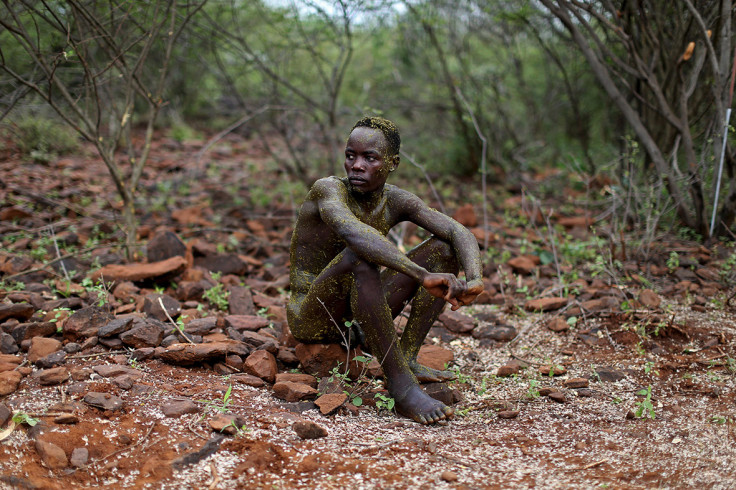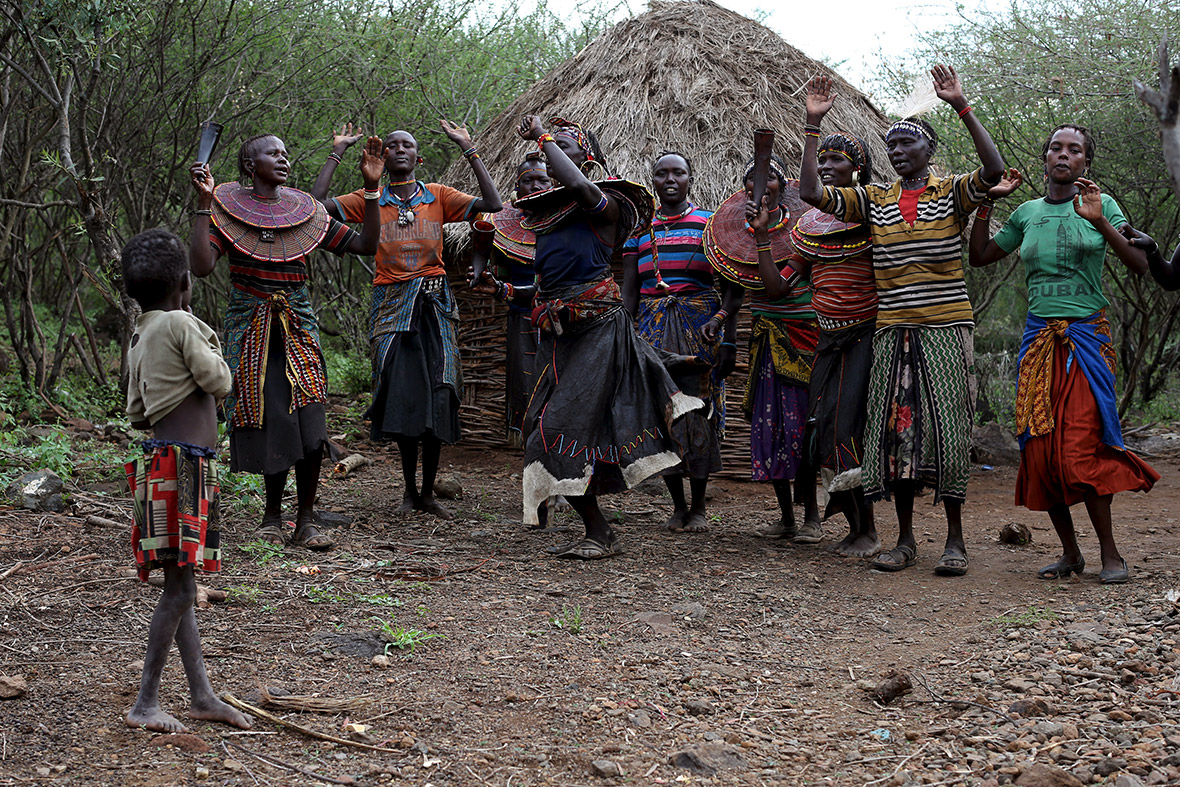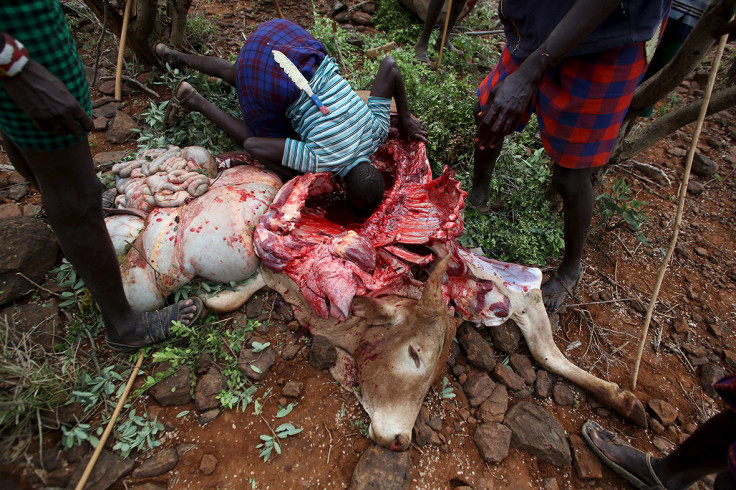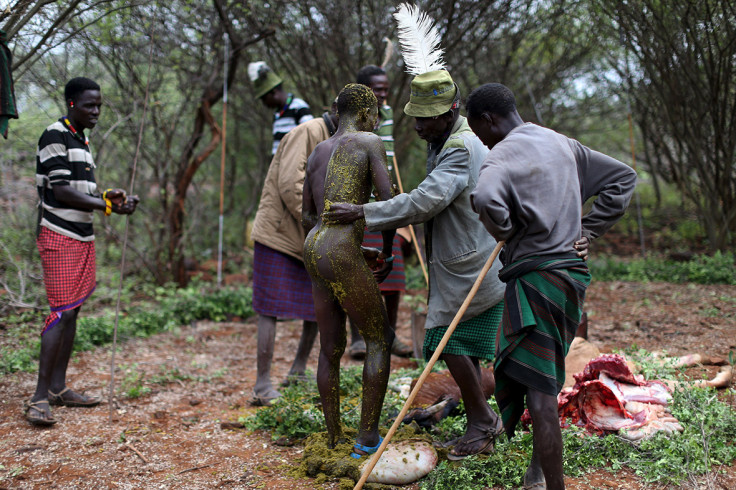Kenya: Young men are smeared with contents of bull's stomach in gory initiation ceremony
Young men among the Pokot people in Kenya's Rift Valley have to undergo a stomach-churning rite of passage if they want to be respected as adults. First, the young initiates must spear a bull and drain its blood, and then they are smeared with the contents of the animal's stomach.

The men, usually aged between 18 and 20, are part of a small Pokot community of herdsmen who tend cows, goats, sheep, camels and donkeys in Baringo County. Livestock is everything for the Pokots, representing wealth and social status. In an isolated region with no permanent police presence, elders deal with disputes. Those who have broken the law are often required to pay a fine in the form of animals.
The rite allows men to sit with local elders and take part in their community's decision-making. It also gives improved access to marriage, once the man and his family have accumulated a dowry of cattle. Initiates can be as old as 30, depending in part on when he and his family can afford to spare a bull for the killing in a community where cattle are precious. The Pokots can have several wives, and men are allowed to marry women many years their junior.
The ritual is called Sapana in the Pokot language. "In our culture, Sapana is the most important rite for a man to be able to gain authority within his community," Hassan Tepa, an elder, told Reuters photographer Siegfried Modola, who documented the ceremony. (Warning: some of these photos are pretty graphic.)
The Sapana ceremony begins at dusk, as villagers gather to light fires. The dancing, singing and drinking carries on through the night. The young men stay at home, steeling themselves for what they'll have to do in the morning.






At sunrise, the young man walks towards the bull, fixes his aim and pierces the animal with a spear on its right side. According to tradition, the bull must be speared several times before death as a way to respect its life – they believe a single blow that could fell a bull would dishonour the animal. He also fires a small arrow into its neck and collects the blood that flows out.





Village men open up the slaughtered animal, taking it in turns to eat clots of blood. This is thought to make them strong and powerful. Some of the bull's blood is kept in a container to be mixed later with milk, a traditional delicacy to be shared.

In one of the most important, final stages of the ceremony, a respected elder opens up the bull's stomach and smears the cud on to the young man's naked body. This rite seals the young man's entrance to adulthood, conferring a new status on him, Tepa the Pokot elder told Reuters. "Only then will he be able to speak to elders," he said. "In return (he will) be listened to and respected."

There are about 620,000 Pokot people in Kenya, according to 2009 census statistics. As the country develops and more people migrate to the cities in search of work, such traditional practices are on the wane. However in this remote region, tribal rituals still hold sway. Siegfried Modola, whose pictures appear in this gallery, has previously documented the Pokot people's practice of forcing young girls into arranged marriages, and a harrowing female circumcision ceremony.
© Copyright IBTimes 2025. All rights reserved.




















